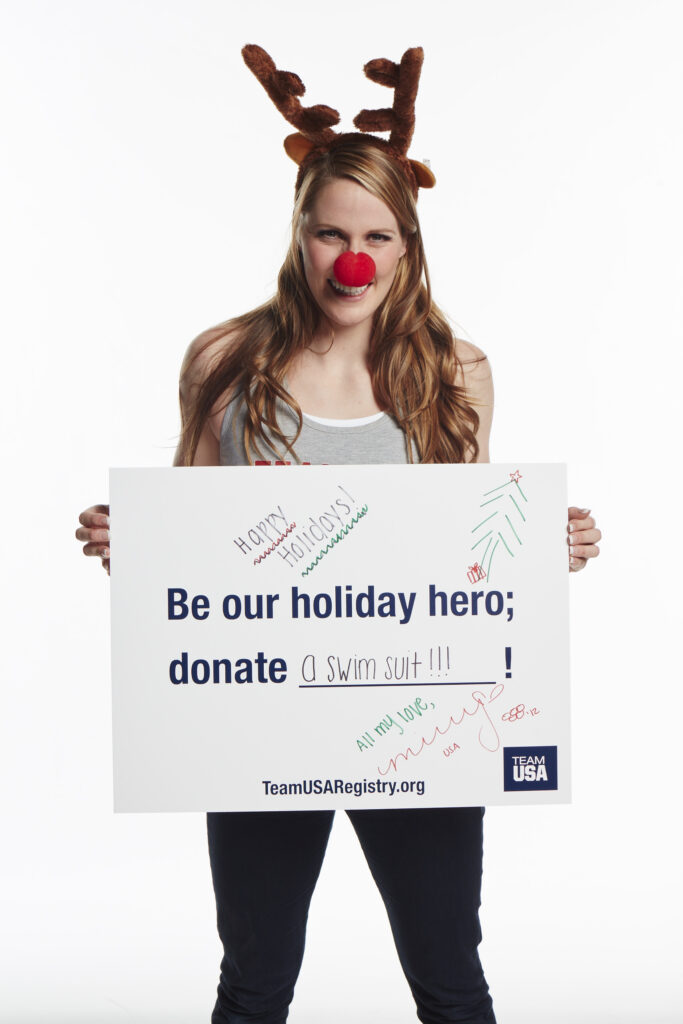
For Olympic athletes, the road to the 2016 Summer Olympic Games in Rio de Janeiro is paved with many expenses.
The USOC estimates that the cost of sending a Team USA athlete to and from the games and covering their training and expenses while there will average $40,000. This dollar amount does not include the costs athletes incur training and preparing for the Olympic Games.
According to the USOC, most Team USA athletes earn less than $20,000 in income annually. Thus, without the support of their national governing bodies and the USOC, most athletes would be financially unable to compete in the Olympic Games.
With the cost of participation in the Olympic Games skyrocketing, national Olympic committees, like the USOC, are seeking out new revenue streams. Recently, the USOC launched a new philanthropic endeavor, the Team USA Registry, to drum up national support for Team USA athletes, while also raising funds.
Much like a wedding gift registry, the Team USA Registry allows Team USA fans to visit the website and pick out a particular registry item that has an associated dollar amount. Registry items range from $5 athletic tape to $25 airline baggage fees and $500 for two weeks’ worth of meals and $1,000 for childcare expenses. Overall, the USOC hopes for sponsors to contribute 2,750 items from the registry.
“Unlike most national Olympic committees, the USOC doesn’t receive government funding. We are being outspent by our competitors at an increasing rate. That’s part of the emphasis in creating philanthropic support of our athletes to raise the resources that we need to provide our athletes with the support they deserve to compete at high levels on the international stage,” said Jon Denney, the U.S. Olympic and Paralympic Foundation’s chief development officer.
Recently, an anonymous donor matched all donations to the Team USA Registry up to $75,000. It was the U.S. Olympic and Paralympic Foundation’s goal to fundraise $150,000 to support Team USA athletes during the first week of December, in an effort to drive significant support into the holiday season.
“Most of our Olympic and Paralympic hopefuls live at the poverty line or below. What they earn is far less than what they need to pay for their training and competitive expenses. By enabling Americans to participate in this effort, it allows them to help our athletes’ dreams come to reality,” Denney noted.
According to Denney, over 80 Team USA athletes have put their support behind the Team USA Registry. To support the efforts surrounding Giving Tuesday and the first week of December, the U.S. Olympic and Paralympic Foundation shot a photo campaign for social media, wherein the athletes will be asking fans to be their “Secret Santas,” and donate items to them from the registry.
One key Team USA athlete that has put her support behind the Team USA Registry is three-time Olympian and twelve-time Olympic Games medal winner, swimmer Natalie Coughlin. Coughlin notes that because of training regimens, most Olympic hopefuls do not have the time to work full-time jobs in an attempt to fund their own Olympic dreams.

“Speaking for myself, it takes me about six hours per day of actual training to prepare for the Olympic Games. On top of that, I have to take care of myself away from training. So, you add onto that time the recovery, nutrition and other activities, and it becomes a full-time job,” Coughlin explained.
Recognizing the time effort versus the income earning ability of Team USA athletes, Coughlin is a vocal supporter of the Team USA Registry. “The registry is really cool. It costs so much to send athletes to the Olympic Games. It’s really special that they came up with these noteworthy presents to give meaning to monetary donations,” she said.
The success of the USOC’s fundraising efforts, like the Team USA Registry, is critical for the financial success and ability of Team USA athletes. Yet, for top-level American athletes, like Coughlin, another source of funding exists: Sponsors.
During the 2012 London Olympic Games, a number of high-profile Olympians took to social media to voice their displeasure over their inability to publicly thank their non-official IOC sponsors on social media. Rule 40 of the IOC Charter precludes their doing so. Ahead of the 2016 Summer Olympic Games, there has been some discussion amongst the IOC about relaxing Rule 40’s provisions to allow Olympians to thank non-official IOC sponsors on social media. Coughlin, who notes that she has “been really fortunate to have some amazing sponsors,” argues this would be a step in the right direction for the IOC.
“I think it would be a really great thing. There are a handful of really generous official Olympic sponsors out there, but not all of us get those Olympic sponsors. We want to be able to show appreciation to the people and companies that get us to the Olympic Games. I have some incredibly generous sponsors that I’ve worked with for many years and I want to be able to thank them, even though they’re not official IOC sponsors,” Coughlin said.
For Team USA athletes with few or no sponsors, the importance of the USOC’s fundraising campaign becomes even more important.
“The USOC is able to support thousands of athletes in the Olympic pipeline through our national governing bodies. The resources that are raised from the registry and other sources of revenue flow through the national governing bodies to help support their high performance programs. We help support those athletes who are at elite levels, even prior to them becoming Olympians or Paralympians,” the U.S. Olympic and Paralympic Foundation’s, Denney said.
Get the free weekly newsletter so you can win the game.
